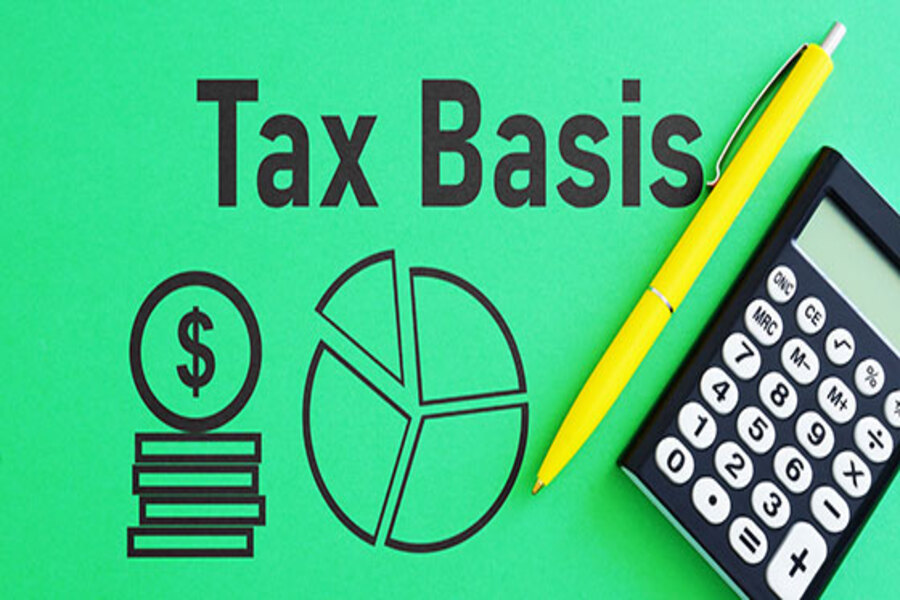One popular fringe benefit is an education assistance program that allows employees to continue learning and perhaps earn a degree with financial assistance from their employers. One way to attract, retain and motivate employees is to provide education fringe benefits so that team members can improve their skills and gain additional knowledge. An employee can receive, on a tax-free basis, up to $5,250 each year from his or her employer under a “qualified educational assistance program.” For this purpose, “education” means any form of instruction or training that improves or develops an individual’s capabilities. It doesn’t matter if it’s job-related or part of a degree program. This includes employer-provided education assistance for graduate-level courses, including those normally taken by individuals pursuing programs leading to a business,...

If you’re a crypto investor or user, you may have noticed something new on your tax return this year. And you may soon notice a new form reporting requirements for digital assets. Check the box Beginning with tax year 2022, taxpayers must check a box on their tax returns indicating whether they received digital assets as a reward, award or payment for property or services or whether they disposed of any digital assets that were held as capital assets through sales, exchanges or transfers. If the “yes” box is checked, taxpayers must report all income related to the digital asset transactions. New information form Under the broker information reporting rules, brokers must report transactions in securities to both the IRS and investors. Transactions are reported on Form 1099-B. Legislation...
Mergers and acquisitions can be stressful for entrepreneurs who have invested blood, sweat and tears in their businesses — or second-generation owners who are selling their parents’ legacies. Setting the asking price and understanding the deal terms, including complex tax matters, can be overwhelming. Fortunately, a business valuation professional has the financial knowledge and real-world experience to help maximize the selling price and minimize the guesswork. Preparing for sale Valuators understand the relationship between risk and return as well as factors that affect value. So they’re equipped to assist in making companies more attractive acquisition candidates. Before a business goes on the market, a valuation pro can help address the following critical items: Financial statements. Audited financial statements offer prospective buyers greater assurance than reviews, compilations or internal...
Fraud perpetrated by employees, management, vendors or customers can happen to any business. And if it does, it can take years to recover from the financial losses and reputational damage. In some cases — especially those involving small companies that lack the cash reserves to cushion the blow — a fraud incident can shut down a business. If your business suspects fraud, engaging a forensic accountant to investigate, zero in on a perpetrator and gather evidence that can be used in court, is generally money well spent. In fact, the faster fraud is found, the less your company is likely to lose. The Association of Certified Fraud Examiners reports that fraud schemes have a median velocity (or rate at which financial losses pile up) of $8,300...
If you’re the owner of an incorporated business, you know there’s a tax advantage to taking money out of a C corporation as compensation rather than as dividends. The reason: A corporation can deduct the salaries and bonuses that it pays executives, but not dividend payments. Therefore, if funds are paid as dividends, they’re taxed twice, once to the corporation and once to the recipient. Money paid out as compensation is only taxed once — to the employee who receives it. However, there are limits to how much money you can take out of the corporation this way. Under tax law, compensation can be deducted only to the extent that it’s reasonable. Any unreasonable portion isn’t deductible and, if paid to a shareholder, may be taxed...
A common question for people planning their estates or inheriting property is: For tax purposes, what’s the “cost” (or “basis”) an individual gets in property that he or she inherits from another? This is an important area and is too often overlooked when families start to put their affairs in order. Under the fair market value basis rules (also known as the “step-up and step-down” rules), an heir receives a basis in inherited property that’s equal to its date-of-death value. So, for example, if your grandfather bought shares in an oil stock in 1940 for $500 and it was worth $5 million at his death, the basis would be stepped up to $5 million for your grandfather’s heirs. That means all of that gain escapes income taxation forever! The...
The starting point for a business valuation is generally the subject company’s financial statements. Here’s an overview of how historical financial statements can serve as the basis for a valuation professional’s conclusion under the cost, income and market approaches. Cost (or asset-based) approach Because the balance sheet identifies a company’s assets and liabilities, it can be a reliable source of financial information, especially for companies that rely heavily on tangible assets (such as manufacturers and real estate holding companies). Under U.S. Generally Accepted Accounting Principles (GAAP), assets are recorded at the lower of cost or market value. So, adjustments may be needed to align an item’s book value with its fair market value. For example, receivables may need to be adjusted for bad debts. Inventory may include obsolete...
If your business occupies substantial space and needs to increase or move from that space in the future, you should keep the rehabilitation tax credit in mind. This is especially true if you favor historic buildings. The credit is equal to 20% of the qualified rehabilitation expenditures (QREs) for a qualified rehabilitated building that’s also a certified historic structure. A qualified rehabilitated building is a depreciable building that has been placed in service before the beginning of the rehabilitation and is used, after rehabilitation, in business or for the production of income (and not held primarily for sale). Additionally, the building must be “substantially” rehabilitated, which generally requires that the QREs for the rehabilitation exceed the greater of $5,000 or the adjusted basis of the existing...
Once you file your 2022 tax return, you may wonder what personal tax papers you can throw away and how long you should retain certain records. You may have to produce those records if the IRS audits your return or seeks to assess tax. It’s a good idea to keep the actual returns indefinitely. But what about supporting records such as receipts and canceled checks? In general, except in cases of fraud or substantial understatement of income, the IRS can only assess tax within three years after the return for that year was filed (or three years after the return was due). For example, if you filed your 2019 tax return by its original due date of April 15, 2020, the IRS has until April 15,...
Recently, the Financial Crimes Enforcement Network (FinCEN) told U.S. financial institutions to exercise caution when processing paper checks because they might be fake. Paper checks? Didn’t those go the way of the dodo? Jokes aside, electronic transfers have indeed replaced paper checks for many consumer and business payments. Yet paper checks are still used at many businesses and check fraud has been increasing. According to FinCEN, banks reported 680,000 check fraud incidents in 2022, almost double those reported in 2021. The U.S. Postal Service has seen similar rises in mail theft, particularly a higher incidence of criminals breaking into collection boxes and robbing postal carriers to obtain paper checks. Even if your business conducts most financial transactions electronically, you should protect against possible check fraud. Why thieves like...
- 1
- 2
- 3
- 4
- 5
- 6
- 7
- 8
- 9
- 10
- 11
- 12
- 13
- 14
- 15
- 16
- 17
- 18
- 19
- 20
- 21
- 22
- 23
- 24
- 25
- 26
- 27
- 28
- 29
- 30
- 31
- 32
- 33
- 34
- 35
- 36
- 37
- 38
- 39
- 40
- 41
- 42
- 43
- 44
- 45
- 46
- 47
- 48
- 49
- 50
- 51
- 52
- 53
- 54
- 55
- 56
- 57
- 58
- 59
- 60
- 61
- 62
- 63
- 64
- 65
- 66
- 67
- 68
- 69
- 70
- 71
- 72
- 73
- 74
- 75
- 76
- 77
- 78
- 79
- 80
- 81
- 82
- 83
- 84
- 85
- 86
- 87
- 88
- 89
- 90
- 91
- 92
- 93
- 94
- 95
- 96
- 97
- 98
- 99
- 100
- 101
- 102
- 103
- 104
- 105
- 106
- 107
- 108
- 109
- 110
- 111
- 112
- 113
- 114
- 115
- 116
- 117
- 118
- 119
- 120
- 121
- 122
- 123
- 124
- 125
- 126
- 127
- 128
- 129
- 130
- 131
- 132
- 133
- 134
- 135
- 136
- 137
- 138
- 139
- 140
- 141
- 142
- 143
- 144
- 145
- 146
- 147
- 148
- 149
- 150











